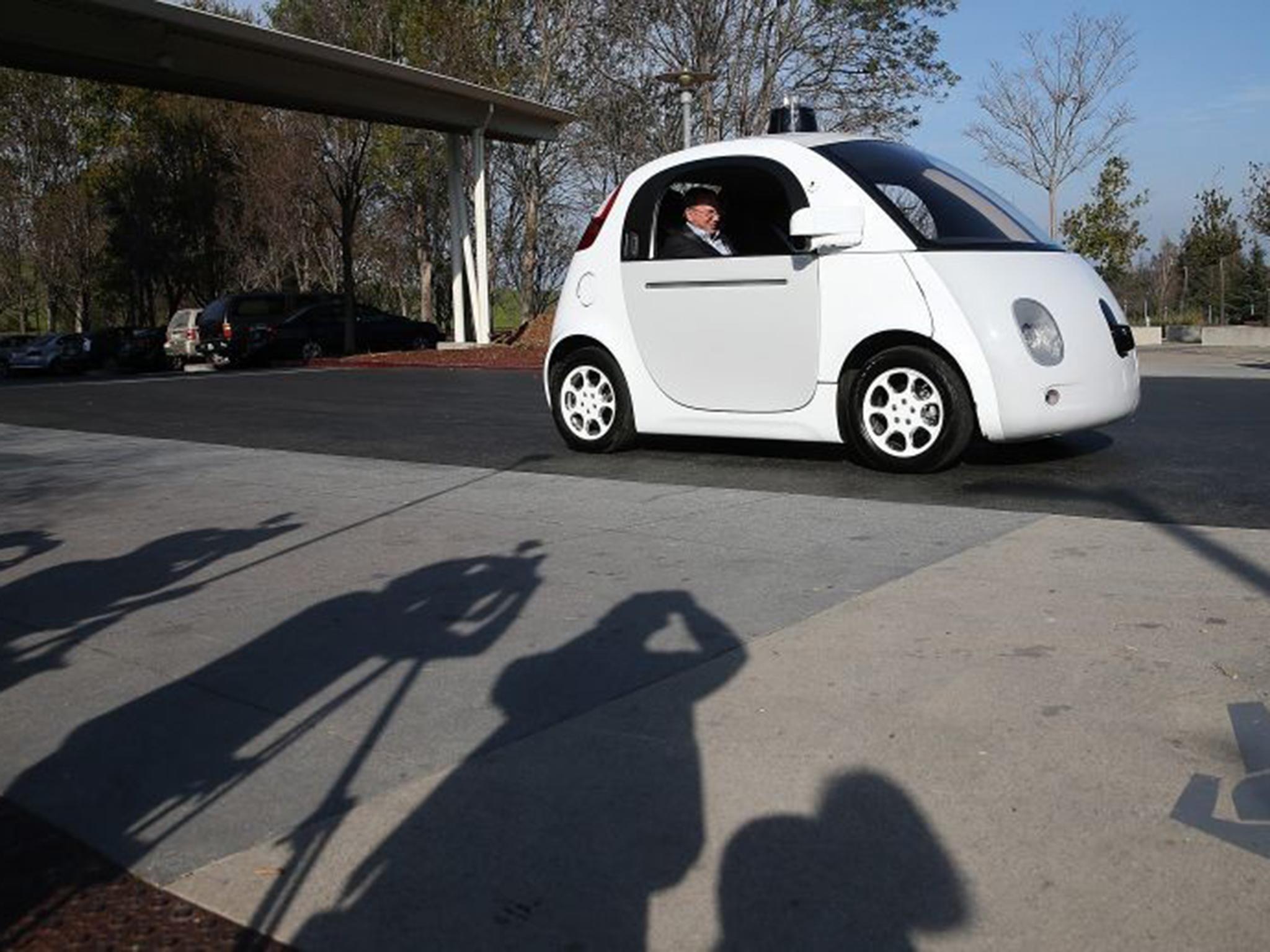George Osborne to open UK roads to driverless cars by 2020
Budget move will be a boost for Google, which sees the UK as a key market for its self-driving vehicles

Your support helps us to tell the story
From reproductive rights to climate change to Big Tech, The Independent is on the ground when the story is developing. Whether it's investigating the financials of Elon Musk's pro-Trump PAC or producing our latest documentary, 'The A Word', which shines a light on the American women fighting for reproductive rights, we know how important it is to parse out the facts from the messaging.
At such a critical moment in US history, we need reporters on the ground. Your donation allows us to keep sending journalists to speak to both sides of the story.
The Independent is trusted by Americans across the entire political spectrum. And unlike many other quality news outlets, we choose not to lock Americans out of our reporting and analysis with paywalls. We believe quality journalism should be available to everyone, paid for by those who can afford it.
Your support makes all the difference.Driverless cars will be allowed on Britain’s roads by 2020 under a plan to be announced by George Osborne in the Budget next Wednesday.
Trials will take place on a small number of local roads later this year. They will be followed by test drives on motorways and major roads next year to ensure the vehicles are safe before their widespread sale and use is permitted.
The Chancellor will publish proposals this summer to scrap rules that prevent autonomous driving on motorways. He wants Britain to be a global leader in a market that could be worth £900bn worldwide by 2025.
The Budget move will be a boost for Google, which has held talks with the Government and sees the UK as a key market for its driverless cars. It emerged in December that the company had held five meetings with the Government in the previous two years. Google’s cars are fitted with a sensor that uses laser technology to detect pedestrians and other vehicles. But its trials in California suffered a setback last month when a self-driving Lexus car hit a public bus in Silicon Valley.
However, experts suggest that driverless cars could eventually eliminate 95 per cent of crashes. They will warn drivers about accidents and traffic jams, and interpret information about hazards to increase road safety.
Mr Osborne will also announce plans for a £15m “connected corridor” between London and Dover in which vehicles could use wireless technology to communicate with other vehicles.
The Chancellor will tell the Commons he wants Britain to “lead the world in new technologies and infrastructure”. He said last night: “At a time of great uncertainty in the global economy, Britain must take bold decisions now to ensure it leads the world when it comes to new technologies and infrastructure. That’s what my Budget next week will seek to do. Driverless cars could represent the most fundamental change to transport since the invention of the internal combustion engine. Naturally we need to ensure safety, and that’s what the trials we are introducing will test.”
But Tom Watson, Labour’s deputy leader, said this week that the Government should go further by appointing a Minister for Automation and a Cabinet committee to ensure the power of the state delivers a new industrial strategy.
Yesterday, Iain Duncan Smith, the Work and Pensions Secretary who is campaigning for Britain to leave the EU, took a swipe at the Chancellor over economic forecasts that are expected to be much more gloomy than those in his Autumn Statement in November.
He told BBC Radio 4: “We had the Autumn Statement and we were told for the next seven years things were looking great. Within one month of that forecast, we’re now being told that things are difficult and the world is changing and therefore we have to revise that… If you can’t forecast more than two months, how in heaven’s name can you forecast the next four or five years?”
Join our commenting forum
Join thought-provoking conversations, follow other Independent readers and see their replies
Comments